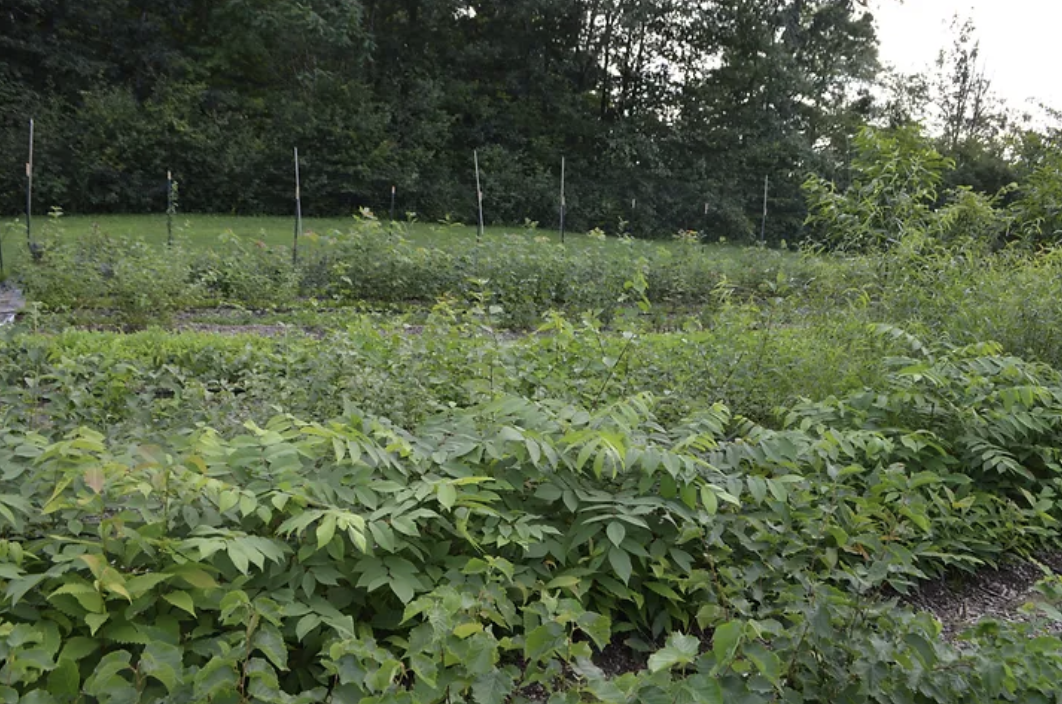Dartmouth Organic Farm| Hanover, NH
Topic: Exploring Agroforestry and Native Tree Cultivation
Wednesday, September 25th, 4-6PM
Partners: Vital Communities & Clean Energy NH
The Dartmouth Farm grows more than 4000 pounds of diverse organic produce, with over 60 varieties of vegetables, grains, and flowers. In addition to annual production, Dartmouth hosts several agroforestry research sites, one of which is a small nursery with native shrubs and trees. In this workshop, researcher Kristen Jovanelly will discuss the utility of incorporating trees on farms, some example agroforestry systems and growing your own trees and shrubs. We will overview nursery design for a small and low-input treed system.
Dartmouth Farms goal is for our produce to have impact not only for those who eat it, but for our students too by creating meaningful hands-on experiences on the farm that connects them to our community, our foodshed, and our environment in a tangible way. The farm produces a wide variety of food and hosts a number of educational programs, events, and ongoing research projects. Kristen Jovanelly grew up in Connecticut and studied Conservation Biology at St. Lawrence University and holds a Master of Forestry from the Yale School of the Environment. In pursuit of a PhD, she is currently researching social ecological entanglements.
Vital Communities
Vital Communities engages Upper Valley people, organizations, and communities to create equitable solutions to our region’s challenges. Their staff specializes in convening for change: bringing people together to size up and address our challenges. Vital Communities has evolved as a hub of initiatives, resources, and working groups in such areas as business vitality, food and farming, energy, transportation, climate change, leadership, housing, and outdoor learning. Learn more at vitalcommunities.org about the various resources and ways to be involved.
Clean Energy NH
Clean Energy New Hampshire is a non-profit working to guide the clean energy transition in the Granite State by focusing on renewable energy, energy efficiency, and beneficial electrification. The REAP (Rural Energy for America Program) Technical Assistance staff provides no-cost technical assistance for agricultural producers looking to apply for the USDA REAP grant. This grant covers a percentage of eligible costs for renewable energy systems and energy efficiency projects. We can help by determining project eligibility, identifying suitable energy-saving measures, and navigating the application process. For more information and access to resources, including a project feasibility questionnaire, visit the CENH Small Business Technical Assistance page.


